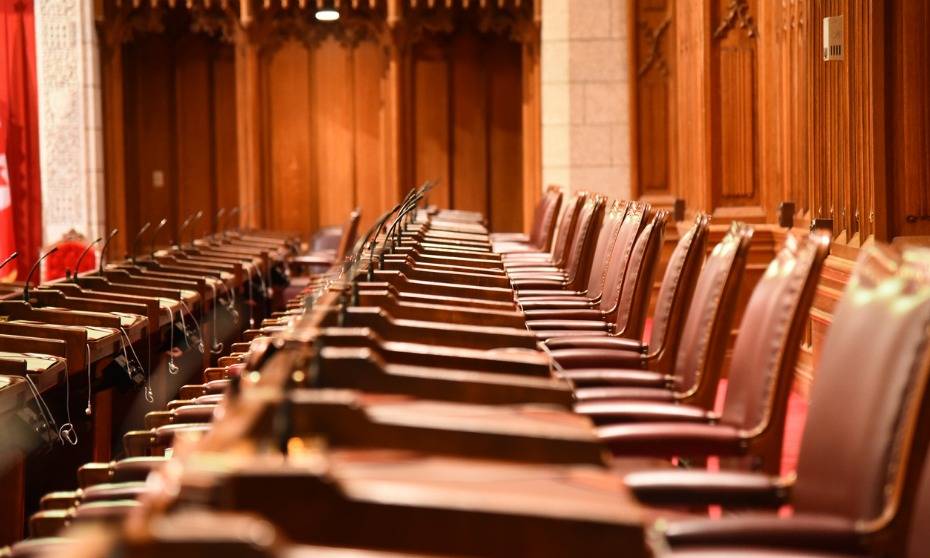
Top legal minds gather in Toronto for opening of the courts ceremony

Ontario’s top judges told regulators on Tuesday that more support was necessary for legal aid and pro bono services.
Justice Strathy said the joint responsibility of protecting the most vulnerable has faced a “test,” noting that the recent and scheduled reductions in legal aid are of “great concern.”
“It’s not for judges to determine how public funds are allocated,” said Chief Justice George Strathy. While the justice system must compete with public health, education and a host of other necessities of modern society, Strathy said, “judges can say is that reducing legal representation for the most vulnerable members of society does not save money.”
The comments came at the annual Opening of the Courts ceremony — a rare look behind the curtain of Ontario’s courts — attended by Attorney General Doug Downey, Legal Aid Ontario chair Charles Harnick, Law Society of Ontario Treasurer Malcolm Mercer, and key members of the bar, such as diversity group leaders.
Strathy told the court that when people go without representation, the pace of proceedings slows to a crawl and every area of the justice system “bears increased costs as a result.”
“I can tell you [that] from personal experience shared by every judge in this courtroom,” said Strathy, adding that those who provide pro bono legal services “cannot do it alone.”
Attorney General Doug Downey told the court the government is committed to removing barriers in the justice system, but that it is aware of the challenges faced by the courts. Downey said he has met with about a third of legal clinics and many other legal organizations.
“As I practised law I experienced the stubbornness of the system . . . . and then every once in a while a watershed moment would remind us change was indeed possible,” said Downey. “We can do more and we can do better. We need to think differently sometimes.”
Chief Justice of the Ontario Court of Justice Lise Maisonneuve noted that the judiciary understands “that we are currently in a challenging fiscal climate,” but said the recent legal aid cuts have spurred delays and more trials in the criminal courts and has increased matters set for trial in family law.
“The unintended consequences of the reduced legal aid funding causes us serious concern . . . . and more conflict in already very difficult proceedings,” Maisonneuve said.
Associate Chief Justice Frank Marrocco said used the recent reduction of legal aid as an example of tension, noting that pro bono legal services should not be viewed as an “encroachment,” an annoyance, nor an all-encompassing solution.
“Government needs to recognize, I respectfully suggest, the importance of pro bono services and cooperate where possible with pro bono initiatives,” Marrocco said.
Marrocco called out lawyers to uphold the bargain of self-regulation, citing the “social contract” set out in 1797 and carried through the Law Society Act that makes access to justice an animating ethic of the legal profession. The LSO is not alone in its responsibility for pro bono services, said Marrocco, who also asked volunteer organizations to step up.
Judges emphasized solutions including judicial independence with regard to resources and technology.
“Our court must, I respectfully suggest, insist upon a reform of our relationship with the executive branch” which results in the court having more control over resources, said Marrocco.
“We need to determine our own priorities so we can be accountable for our priorities. We cannot modernize without an adequate investment in technology . . . . We must become accountable for the creation and implementation of that reform,” said Marrocco.
Strathy noted that the court will obtain a new case management system to improve efficiency of electronic filing and will award a contract this fall. He also noted the increasing presence of video recording in the court, anticipating that more will follow two recent televised court cases.
Nonetheless, Marrocco called for a “new deal,” and said there is a limit to how effective the court’s existing coping mechanisms can be.
There “must be a modest, prudently managed investment in technology,” said Marrocco. “Over the years that investment has proven elusive, even though the benefits are accepted without question.”
There has been progress. Owen Young, representing the Attorney General of Canada, noted the new judicial appointment system has improved gender equity and other diversity measures. Other judges praised the expansion of the unified family court, although it has not been without its hiccups. The pro bono inmate appeal program was also recognized for its impact.
Still, Strathy said, the “greatest challenge remains meeting the needs of the unrepresented.
“The process of the administration of justice is not always quite so orderly . . . . It reflects the lives of those most affected by those court proceedings,” Strathy said. “They come here with their lives in turmoil facing life-altering consequences . . . . They are ill-equipped to navigate the legal process on their own yet far too many are unrepresented.”